|
Books Should Be Free Loyal Books Free Public Domain Audiobooks & eBook Downloads |
|
|
Books Should Be Free Loyal Books Free Public Domain Audiobooks & eBook Downloads |
|
Non-fiction |
|---|
|
Book type:
Sort by:
View by:
|
By: Jacob Abbott (1803-1879) | |
|---|---|
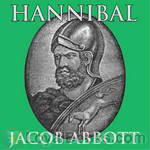 Hannibal
Hannibal
There are certain names which are familiar, as names, to all mankind; and every person who seeks for any degree of mental cultivation, feels desirous of informing himself of the leading outlines of their history, that he may know, in brief, what it was in their characters or their doings which has given them so widely-extended a fame. Consequently, great historical names alone are selected; and it has been the writer's aim to present the prominent and leading traits in their characters, and all the important events in their lives, in a bold and free manner, and yet in the plain and simple language which is so obviously required in works which aim at permanent and practical usefulness... | |
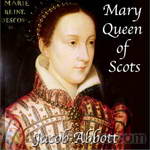 Mary Queen of Scots
Mary Queen of Scots
There are certain names which are familiar, as names, to all mankind; and every person who seeks for any degree of mental cultivation, feels desirous of informing himself of the leading outlines of their history, that he may know, in brief, what it was in their characters or their doings which has given them so widely-extended a fame. Consequently, great historical names alone are selected; and it has been the writer’s aim to present the prominent and leading traits in their characters, and all the important events in their lives, in a bold and free manner, and yet in the plain and simple language which is so obviously required in works which aim at permanent and practical usefulness... | |
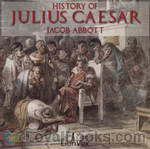 History of Julius Caesar
History of Julius Caesar
The book chronicles the extraordinary life and leadership of Rome’s Emperor Julius Caesar, from his early years to his assassination. | |
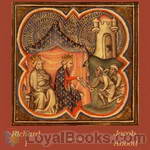 Richard I
Richard I
There are certain names which are familiar, as names, to all mankind; and every person who seeks for any degree of mental cultivation, feels desirous of informing himself of the leading outlines of their history, that he may know, in brief, what it was in their characters or their doings which has given them so widely-extended a fame. Consequently, great historical names alone are selected; and it has been the writer’s aim to present the prominent and leading traits in their characters, and all the important events in their lives, in a bold and free manner, and yet in the plain and simple language which is so obviously required in works which aim at permanent and practical usefulness... | |
 Charles I
Charles I
There are certain names which are familiar, as names, to all mankind; and every person who seeks for any degree of mental cultivation, feels desirous of informing himself of the leading outlines of their history, that he may know, in brief, what it was in their characters or their doings which has given them so widely-extended a fame. Consequently, great historical names alone are selected; and it has been the writer’s aim to present the prominent and leading traits in their characters, and all the important events in their lives, in a bold and free manner, and yet in the plain and simple language which is so obviously required in works which aim at permanent and practical usefulness... | |
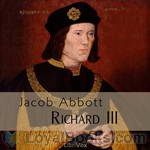 Richard III
Richard III
Jacob Abbott chronicles the unspeakably treacherous rise of Richard III to the throne of England in the midst of the war between the Yorks and the Lancasters and his ultimate fall on the Field of Bosworth. (Introduction by Cathy Barratt) | |
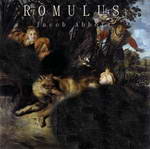 Romulus
Romulus
Jacob Abbott wrote many historical books for children. He was careful to ensure historical accuracy, and as he said himself in the preface to this book "Whatever of interest ... these stories may possess is due solely to the facts themselves which are recorded in them, and to their being brought together in a plain, simple, and connected narrative."This is the story of Romulus, the founding of Rome and the early years of its history, written in a way both readable and enjoyable for adults and children alike. | |
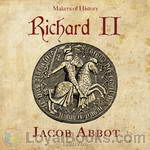 Richard II, Makers of History
Richard II, Makers of History
Chronicles the life of Richard II, born in 1367 in Bordeaux, France, who later wore the crown of King of England. | |
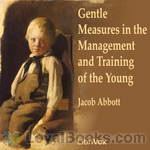 Gentle Measures in the Management and Training of the Young
Gentle Measures in the Management and Training of the Young
Subtitled, "The principles on which a firm parental authority may be established and maintained, without violence or anger, and the right development of the moral and mental capacities be promoted by methods in harmony with the structure and the characteristics of the juvenile mind." This book gives practical advice on how to raise children using "gentle measures" that do not damage the children's emotions or self esteem. Most of the information is as relevant and practical today as it was when published in 1871. | |
 The Teacher Or, Moral Influences Employed in the Instruction and Government of the Young
The Teacher Or, Moral Influences Employed in the Instruction and Government of the Young
| |
By: Jacob Stroyer (1849-1908) | |
|---|---|
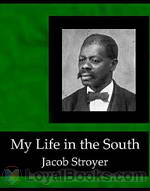 My Life in the South
My Life in the South
My Life in the South is the vivid and touching autobiography of African-American former slave, Jacob Stroyer. It recounts experiences from his early childhood on the planation up to his involvement in the Confederacy's war effort and eventually his experience of becoming a free man. | |
By: Jacob William Wright | |
|---|---|
 The Long Ago
The Long Ago
Short memory of boyhood by a little-known American poet based in Carmel-By-The-Sea, California. | |
By: James Allen (1864-1912) | |
|---|---|
 As a Man Thinketh
As a Man Thinketh
“A man is literally what he thinks, his character being the complete sum of all his thoughts,” is one of the quotes from James Allen's classic self help books, As a Man Thinketh. Published in 1902, it provides many more such insightful concepts on the power of thought and its effect on a human being's personality and behavior. This volume is more of a literary essay than a complete book and its title is based on a Biblical proverb, “As a man thinketh in his heart, so is he.” Taking this piece of ancient wisdom further, James Allen explores the far-reaching effects of the inner workings of a person's mind and motivation... | |
 The Way of Peace
The Way of Peace
The Way of Peace is your guide to the power of meditation; self and truth; the acquirement of spiritual power; the realization of selfless love; entering into the infinite; saints, sages, and saviors; the law of service; and the realization of perfect peace. | |
By: James Anthony Froude (1818-1894) | |
|---|---|
 Short Studies on Great Subjects
Short Studies on Great Subjects
| |
By: James Baldwin (1841-1925) | |
|---|---|
 Four Great Americans: Washington, Franklin, Webster, Lincoln. A Book for Young Americans
Four Great Americans: Washington, Franklin, Webster, Lincoln. A Book for Young Americans
Written for children, James Baldwin’s history of Washington, Franklin, Webster, and Lincoln brings these men to life in a way that will be interesting for adults as well. The stories touch on the little humanities of the great men, rather than dwelling on the great works and great events of their lifetimes, without ignoring the latter. | |
By: James Boswell (1740-1795) | |
|---|---|
 The Life of Samuel Johnson
The Life of Samuel Johnson
Boswell’s Life of Samuel Johnson is widely considered to be the greatest English-language biography ever written. It was revolutionary in its efforts to represent Johnson as he was, celebrating his flaws as well as his genius, and in Boswell’s decision to represent Johnson primarily by quoting his writings and relating personal anecdotes rather than relying on matters of public record. From the time of its publication till now, The Life of Johnson has been one of the most popular and influential books ever written. | |
By: James Braidwood | |
|---|---|
 Fire Prevention and Fire Extinction
Fire Prevention and Fire Extinction
| |
By: James Brendan Connolly (1868-1957) | |
|---|---|
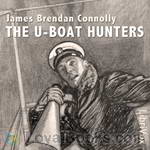 The U-Boat Hunters
The U-Boat Hunters
The author takes the listener on a tour of various ships used in WW1. He discusses the boats and the seamen who occupy them and their encounters with the German U-boats. It is a collection of short stories, each one complete, about them all. The author was also an Olympic athlete; winning a bronze, silver and gold medal in the Athens Olympics of 1896 and a silver in the Paris games of 1900. | |
By: James Cardinal Gibbons (1834-1921) | |
|---|---|
 The Faith of Our Fathers
The Faith of Our Fathers
The Faith of Our Fathers: A Plain Exposition and Vindication of the Church Founded by Our Lord Jesus Christ is a book published in 1876 by archbishop James Gibbons, which became a best-selling conversion manual in the United States, and by 1980 was in its 111th printing.(From the preface) “The object of this little volume is to present in a plain and practical form an exposition and vindication of the principal tenets of the Catholic Church. It was thought sufficient to devote but a brief space to such Catholic doctrines and practices as are happily admitted by Protestants, while those that are controverted by them are more elaborately elucidated... | |
By: James Champlin Fernald (1838-1918) | |
|---|---|
 English Synonyms and Antonyms
English Synonyms and Antonyms
English Synonyms and Antonyms is basically a vocabulary builder that students might use as they prepare for entrance or exit exams. Each entry gives a list of synonyms, followed by a paragraph that briefly explains or exemplifies the subtle distinctions between the listed words. The entries sometimes close with a few words on the prepositions that follow selected synonyms, but more often with a list of antonyms.By "synonyms" we usually understand words that coincide or nearly coincide in some part of their meaning, and may hence within certain limits be used interchangeably, while outside of those limits they may differ very greatly in meaning and use... | |
By: James Cook | |
|---|---|
 A Voyage Towards the South Pole and Round the World
A Voyage Towards the South Pole and Round the World
Having, on his first voyage, discovered Australia, Cook still had to contend with those who maintained that the Terra Australians Incognita (the unknown Southern Continent) was a reality. To finally settle the issue, the British Admiralty sent Cook out again into the vast Southern Ocean with two sailing ships totalling only about 800 tons. Listen as Cook, equipped with one of the first chronometers, pushes his small vessel not merely into the Roaring Forties or the Furious Fifties but becomes the first explorer to penetrate the Antarctic Circle, reaching an incredible Latitude 71 degrees South, just failing to discover Antarctica. (Introduction by Shipley) | |
 Directions for Navigating on Part of the South Coast of Newfoundland
Directions for Navigating on Part of the South Coast of Newfoundland
| |
By: James E. Seaver (1787-1827) | |
|---|---|
 A Narrative of the Life of Mrs. Mary Jemison
A Narrative of the Life of Mrs. Mary Jemison
Mrs. Mary Jemison was taken by the Indians, in the year 1755, when only about twelve years of age, and has continued to reside amongst them to the present time. Containing an account of the murder of her father and his family; her sufferings; her marriage to two Indians; her troubles with her children; barbarities of the Indians in the French and Revolutionary Wars; the life of her last husband, and many historical facts never before published. | |
By: James E. Talmage | |
|---|---|
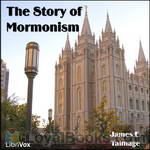 The Story of Mormonism
The Story of Mormonism
A few years before James E. Talmage was called to serve as an apostle for the Church of Jesus Christ of Latter-day Saints (also known as the "Mormon" church), he gave a series of lectures at universities such as the University of Michigan and Cornell, describing the history of the Church. These lectures were later compiled and published as 'The Story of "Mormonism."' It is a concise, yet informative summary for all interested in learning the history and beliefs of the "Mormon" church. (Summary by Nathan Markham) | |
By: James Edward Austen-Leigh (1798-1874) | |
|---|---|
 Memoir of Jane Austen
Memoir of Jane Austen
“The Memoir of my Aunt, Jane Austen, has been received with more favour than I had ventured to expect. The notices taken of it in the periodical press, as well as letters addressed to me by many with whom I am not personally acquainted, show that an unabated interest is still taken in every particular that can be told about her. I am thus encouraged not only to offer a Second Edition of the Memoir, but also to enlarge it with some additional matter which I might have scrupled to intrude on the public if they had not thus seemed to call for it... | |
By: James Frazer (1854-1941) | |
|---|---|
 The Golden Bough
The Golden Bough
The Golden Bough: A Study in Magic and Religion is a wide-ranging comparative study of mythology and religion, written by Scottish anthropologist Sir James George Frazer (1854–1941). It offered a modernist approach, discussing religion dispassionately as a cultural phenomenon, rather than from a theological perspective. Although most of its theories have subsequently been exploded (the most famous one being that of the relationship between magic, religion and science), its impact on contemporaneous European literature was substantial... | |
By: James Gall (1784?-1874) | |
|---|---|
 A Practical Enquiry into the Philosophy of Education
A Practical Enquiry into the Philosophy of Education
| |
By: James H. Collins (1873-1957) | |
|---|---|
 Great Taxicab Robbery
Great Taxicab Robbery
In 1912, $25,000 was stolen during a bank transfer in New York City in broad daylight. In what may appear astonishing in today's world, the transfer occurred in a New York City taxicab. This factual account brings true crime of the early twentieth century to life. The various methods used by the detectives and police in their attempts to solve the mystery behind the robbery, and hopefully bring the thieves to justice, makes for great reading, particularly when one considers the fact that the accounts occurred over a century ago, and are quite authentic... | |
By: James Huneker (1860-1921) | |
|---|---|
 Chopin: The Man and His Music
Chopin: The Man and His Music
A biography of the Polish composer and virtuoso pianist Frédéric Chopin and a critical analysis of his work by American music writer and critic James Huneker. | |
By: James J. Walsh (1865-1942) | |
|---|---|
 Old-Time Makers of Medicine
Old-Time Makers of Medicine
Dr. Walsh’s Old-Time Makers of Medicine chronicles the history and development of modern medicine from ancient times up to the discovery of America. Throughout this historical guide, Dr. Walsh shows numerous examples of practices thought to be entirely modern that were clearly anticipated hundreds or thousands of years ago. Ancient healers sought to use the body’s natural healing ability, rather than rely exclusively on external cures. Physicians even in ancient times relied on what is now recognized as the placebo effect... | |
By: James John Howard Gregory (1827-1910) | |
|---|---|
 Cabbages and Cauliflowers: How to Grow Them A Practical Treatise, Giving Full Details On Every Point, Including Keeping And Marketing The Crop
Cabbages and Cauliflowers: How to Grow Them A Practical Treatise, Giving Full Details On Every Point, Including Keeping And Marketing The Crop
| |
By: James Mackintosh (1765-1832) | |
|---|---|
 A Discourse on the Study of the Law of Nature and Nations
A Discourse on the Study of the Law of Nature and Nations
| |
By: James Moores Ball (1862-1929) | |
|---|---|
 Andreas Vesalius, The Reformer of Anatomy
Andreas Vesalius, The Reformer of Anatomy
Vesalius is one of the foundation stones of modern medicine. Forsaking the study of anatomy by reading the ancients, he instead dissected bodies and drew detailed illustrations of his observations. He was enormously influential in the development of modern medicine. This 1910 biography opens up his life admirably. The printed book contains many illustrations taken from his works. The listener will want to be aware that modern historians of medicine are much more positive about the contributions of medieval Arabic medical teachers than the author of this book. - Summary by David Wales | |
By: James Nasmyth (1808-1890) | |
|---|---|
 James Nasmyth: Engineer; an autobiography
James Nasmyth: Engineer; an autobiography
| |
By: James Norman Hall | |
|---|---|
 Kitchener's Mob Adventures of an American in the British Army
Kitchener's Mob Adventures of an American in the British Army
“Pvt Ryan”, “Platoon”, “A Soldier’s Home”, “Kitchener’s Mob”. These aren’t happy stories, they are about the experience of War. War at different times, and although modern warfare may be more sanitized, the adventure, the horror, the emotions don’t change. James Norman Hall has been there. He “Saw the Elephant”, and his portrayal of his WWI experience is a tribute to those ordinary people who do such extraordinary things. Those who have served will identify with at least some part if not all of this book, be it the rigors of training, the camaraderie, or possibly those memories that try as you may, you can never make go away... | |
By: James Orton (1830-1877) | |
|---|---|
 The Andes and the Amazon
The Andes and the Amazon
This book, with the subtitle "Across the Continent of South America" describes the scientific expedion of 1867 to the equatorial Andes and the Amazon. The route was from Guayaquil to Quito, over the Cordillera, through the forest to Napo, and, finally, on the Rio Napo to Pebas on the Maranon. Besides this record, the expedition - under the auspices of the Smithsonian Institute - collected samples of rocks and plants, and numerous specimen of animals. The scientists also compiled a vocabulary of local languages and produced a new map of equatorial America... | |
By: James Parton (1822-1891) | |
|---|---|
 Captains of Industry
Captains of Industry
In this volume are presented examples of men who shed lustre upon ordinary pursuits, either by the superior manner in which they exercised them or by the noble use they made of the leisure which success in them usually gives. Such men are the nobility of republics.Most of these chapters were published originally in "The Ledger" of New York, and a few of them in "The Youths' Companion" of Boston, the largest two circulations in the country. I have occasionally had reason to think that they were of some service to young readers, and I may add that they represent more labor and research than would be naturally supposed from their brevity... | |
By: James Sheehan | |
|---|---|
 Your Plants Plain and Practical Directions for the Treatment of Tender and Hardy Plants in the House and in the Garden
Your Plants Plain and Practical Directions for the Treatment of Tender and Hardy Plants in the House and in the Garden
| |
By: James Stephens (1882-1950) | |
|---|---|
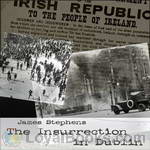 The Insurrection in Dublin
The Insurrection in Dublin
The Easter Rising was a rebellion staged in Ireland in Easter Week, 1916. The Rising was an attempt by militant Irish republicans to win independence from Britain by force of arms. This account was written by Irish novelist James Stephens, who lived and worked in Dublin at the time. | |
By: James T. Nichols (1865-?) | |
|---|---|
 Birdseye Views of Far Lands
Birdseye Views of Far Lands
Birdseye Views of Far Lands is an interesting, wholesome presentation of something that a keen-eyed, alert traveler with the faculty of making contrasts with all classes of people in all sorts of places, in such a sympathetic way as to win their esteem and confidence, has been able to pick up as he has roamed over the face of the earth for a quarter of a century.The book is not a geography, a history, a treatise on sociology or political economy. It is a Human Interest book which appeals to the reader who would like to go as the writer has gone and to see as the writer has seen the conformations of surface, the phenomena of nature and the human group that make up what we call a "world... | |
By: James W. Donovan | |
|---|---|
 Don't Marry
Don't Marry
This book doesn't advise against marriage but just offers advice on the errors some people can make who make the wrong choice when entering into so long a contract. - Summary by Michele Eaton | |
By: James W. S. Marr (1902-1965) | |
|---|---|
 Into the Frozen South
Into the Frozen South
James Marr was a Boy Scout selected to go along with Sir Ernest Shackleton aboard the Quest in 1921 for the Shackleton–Rowett Expedition to Antarctica. This book provides a description of what would be Shackleton's last exploration due to his untimely death en route. - Summary by mleigh | |
By: James W. Steele | |
|---|---|
 Steam, Steel and Electricity
Steam, Steel and Electricity
| |
By: James Wharton | |
|---|---|
 The Bounty of the Chesapeake Fishing in Colonial Virginia
The Bounty of the Chesapeake Fishing in Colonial Virginia
| |
By: Jane Addams (1860-1935) | |
|---|---|
 Twenty Years at Hull-House
Twenty Years at Hull-House
Jane Addams was the first American woman to be awarded the Nobel Peace Prize. In a long, complex career, she was a pioneer settlement worker and founder of Hull-House in Chicago, public philosopher (the first American woman in that role), author, and leader in woman suffrage and world peace. She was the most prominent woman of the Progressive Era and helped turn the nation to issues of concern to mothers, such as the needs of children, public health and world peace. She emphasized that women have a special responsibility to clean up their communities and make them better places to live, arguing they needed the vote to be effective... | |
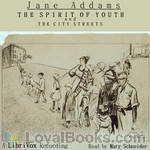 The Spirit of Youth and the City Streets
The Spirit of Youth and the City Streets
Much of the material in the following pages has appeared in current publications. It is here presented in book form in the hope that it may prove of value to those groups of people who in many cities are making a gallant effort to minimize the dangers which surround young people and to provide them with opportunities for recreation. (Introduction by Jane Addams) Jane Addams (1860 – 1935) was the first American woman to be awarded the Nobel Peace Prize. In a long, complex career, she was a pioneer settlement worker and founder of Hull House in Chicago, a public philosopher, a sociologist, an author and a spokesperson for women's suffrage and world peace. | |
By: Jane Andrews (1833-1887) | |
|---|---|
 The Stories Mother Nature Told Her Children
The Stories Mother Nature Told Her Children
“You may think that Mother Nature, like the famous “old woman who lived in the shoe,” has so many children that she doesn’t know what to do. But you will know better when you become acquainted with her, and learn how strong she is, and how active; how she can really be in fifty places at once, taking care of a sick tree, or a baby flower just born; and, at the same time, building underground palaces, guiding the steps of little travellers setting out on long journeys, and sweeping, dusting, and arranging her great house,–the earth... | |
By: Japan | |
|---|---|
 The Constitution of Japan, 1946
The Constitution of Japan, 1946
| |
 The Constitution of the Empire of Japan, 1889
The Constitution of the Empire of Japan, 1889
| |
By: Jason L. Merrill | |
|---|---|
 Hemp Hurds as Paper-Making Material United States Department of Agriculture, Bulletin No. 404
Hemp Hurds as Paper-Making Material United States Department of Agriculture, Bulletin No. 404
| |
By: Jean Armour Polly | |
|---|---|
 Surfing the Internet
Surfing the Internet
| |
By: Jean Craighead George (1919-2012) | |
|---|---|
 Everglades Wildguide
Everglades Wildguide
This is a United States National Parks guidebook written by a popular young people's nature writer, Jean Craighead George. It covers the Everglades in detail, from its mangrove swamps to its sawgrass prairies. | |
By: Jean Lee Hunt | |
|---|---|
 A Catalogue of Play Equipment
A Catalogue of Play Equipment
| |
By: Jean Toomer (1894-1967) | |
|---|---|
 Cane
Cane
Reading this book, I had a vision of a land, heretofore sunk in the mists of muteness, suddenly rising up into the eminence of song. Innumerable books have been written about the South; some good books have been written in the South. This book is the South. . . . . Part One is the primitive and evanescent world of Georgia. Part Two is the threshing and suffering brown world of Washington. . . . Part Three is Georgia again . . . this black womb of the ferment seed: the neurotic, educated, spiritually stirring Negro. From the Forward by Waldo Frank | |
By: Jean-Henri Fabre (1823-1915) | |
|---|---|
 Life of the Fly, With Which are Interspersed Some Chapters of Autobiography
Life of the Fly, With Which are Interspersed Some Chapters of Autobiography
The title tells all, along with other observations on insect life from the famed accidental entomologist of 19th Century France.. | |
By: Jean-Jacques Rousseau (1712-1778) | |
|---|---|
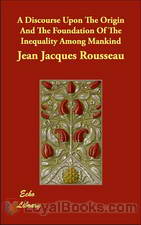 A Discourse Upon the Origin and the Foundation of the Inequality Among Mankind
A Discourse Upon the Origin and the Foundation of the Inequality Among Mankind
This work presents Rousseau’s belief in the profoundly transformational effects of the development of civilization on human nature, which Rousseau claims other political philosophers had failed to grasp. Specifically, before the onset of civilization, according to Rousseau, natural man lived a contented, solitary life, naturally good and happy. It is only with the onset of civilization, Rousseau claims, that humans become social beings, and, concomitant with their civilization, natural man becomes corrupted with the social vices of pride, vanity, greed and servility. | |
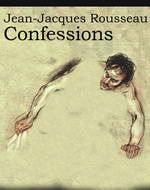 Confessions
Confessions
Considered to mark the emergence of a new literary form, the unvarnished autobiography, Confessions by Jean-Jacques Rousseau was first published in 1782, four years after his death. The philosopher and educationist whose political philosophy is credited with having inspired the French Revolution, Rousseau was a man of immense wit, talent and depth of thinking. His skill in art, music, literature and cooking along with his magnificent body of work in philosophy, politics, education and sociology have made him a legendary figure... | |
 Émile or, Concerning Education; Extracts
Émile or, Concerning Education; Extracts
| |
By: Jeanne Marie Bouvier de la Motte Guyon | |
|---|---|
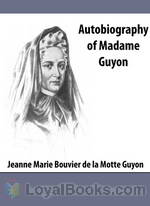 Autobiography of Madame Guyon
Autobiography of Madame Guyon
Jeanne-Marie Bouvier de la Motte-Guyon (commonly known as Madame Guyon) (April 13, 1648 – June 9, 1717) was a French mystic and one of the key advocates of Quietism. Quietism was considered heretical by the Roman Catholic Church, and she was imprisoned from 1695 to 1703 after publishing a book on the topic, A Short and Easy Method of Prayer. This translation is by Thomas Taylor Allen was first published in 1897. Allen’s dates are unknown. | |
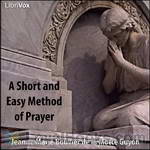 A Short and Easy Method of Prayer
A Short and Easy Method of Prayer
Originally published in 1685, Madame Guyon’s A Short and Easy Method of Prayer is considered a classic of Christian mysticism, influencing great writers and speakers such as John Wesley and Charles Spurgeon. In it, Madame Guyon carefully and briefly sets out her ‘unmethodical method’ by which any and all can commune with God at any time and under any circumstances. | |
By: Jeannette Augustus Marks (1875-1964) | |
|---|---|
 A Girl's Student Days and After
A Girl's Student Days and After
| |
By: Jennie Ellis Keysor | |
|---|---|
 Great Artists
Great Artists
Biographies of Raphael Santi, Murillo, Peter Paul Rubens, and Albrecht Durer. This is a wonderful tool for art study as there are references for further study, as well as ideas for language arts to incorporate into the study. | |
By: Jerome K. Jerome (1859-1927) | |
|---|---|
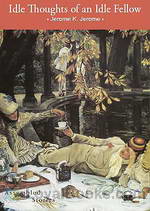 Idle Thoughts of an Idle Fellow
Idle Thoughts of an Idle Fellow
Idle Thoughts of an Idle Fellow, published in 1886, is a collection of humorous essays by Jerome K. Jerome. It was the author’s second published book and helped establish him as a leading English humorist. The book consists of 14 independent articles arranged by themes. | |
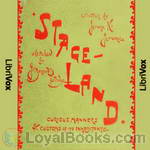 Stage Land
Stage Land
A comic look at the curious habits and customs of the inhabitants of ‘Stage Land’. Dedicated to ‘that highly respectable but unnecessarily retiring individual, of whom we hear so much but see so little, “the earnest student of drama” | |
 Idle Ideas in 1905
Idle Ideas in 1905
Back in 1905 Jerome K. Jerome shared his thoughts on a variety of subjects, including "Should Women Be Beautiful?", "Should Soldiers Be Polite?" and "Is The American Husband Made Entirely Of Stained Glass?". Every subject is analysed and commented on in the witty and satirical style we have grown to expect from the author. | |
By: Joe Tilden | |
|---|---|
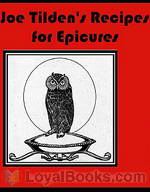 Joe Tilden's Recipes for Epicures
Joe Tilden's Recipes for Epicures
Major Joseph Tilden was in his time one of the most famous Bohemians and epicureans of the Pacific Coast. Ever since his death his many friends have been trying to learn the culinary secrets which made a repast of his devising so delicious. He had given his recipes to but few, and those few his most intimate friends and fellow spirits. One of the most favored of his old companions has given this complete collection of his recipes for publication.San Francisco, May, 1907.(Excerpt from text) | |
By: Johann Amos Comenius (1592-1670) | |
|---|---|
 The Orbis Pictus
The Orbis Pictus
| |
By: Johanna Brandt (1876-1964) | |
|---|---|
 The Petticoat Commando
The Petticoat Commando
In introducing the English version of this book I venture to bespeak a welcome for it, not only for the light which it throws on some little-known incidents of the South African war, but also because of the keen personal interest of the events recorded. It is more than a history. It is a dramatic picture of the hopes and fears, the devotion and bitterness with which some patriotic women in Pretoria watched and, as far as they could, took part in the war which was slowly drawing to its conclusion on the veld outside... | |
By: Johanna Spyri (1827-1901) | |
|---|---|
 Heidi (version 2 dramatic reading)
Heidi (version 2 dramatic reading)
"Heidi" takes us on a journey to the eventful childhood of a good-hearted girl from the Swiss Alps. A warm and loving story, full of touching moments, it reaches children and adults alike. It was written in 1880 and published in two parts: 1. Heidi's years of learning and travel. 2. Heidi makes use of what she has learned. This English translation from 1915 has "an especial flavor, that very quality of delight in mountain scenes, in mountain people and in child life generally, which is one of the chief merits of the German original... | |
 Little Miss Grasshopper
Little Miss Grasshopper
The Feland family go on a holiday in Switzerland. While there, their impulsive younger daughter gets into a scrape that teaches the whole family a lesson in love and faith. Summary by Devorah Allen. | |
By: John Addington Symonds (1840-1893) | |
|---|---|
 A Problem in Modern Ethics
A Problem in Modern Ethics
“Society lies under the spell of ancient terrorism and coagulated errors. Science is either wilfully hypocritical or radically misinformed.” John Addington Symonds struck many an heroic note in this courageous (albeit anonymously circulated) essay. He is a worthy Virgil guiding the reader through the Inferno of suffering which emerging medico-legal definitions of the sexually deviant were prepared to inflict on his century and on the one which followed. Symonds pleads for sane human values in... | |
By: John Andreas Widtsoe (1872-1952) | |
|---|---|
 Dry-Farming : a System of Agriculture for Countries under a Low Rainfall
Dry-Farming : a System of Agriculture for Countries under a Low Rainfall
| |
By: John Augustine Zahm (1851-1921) | |
|---|---|
 Woman in Science
Woman in Science
A history of woman's role in science through the ages and the many contributions she has made.Chapter Titles are:1. Woman's Long Struggle for Things of the Mind2. Woman's Capacity for Scientific Pursuits3. Women in Mathematics4. Women in Astronomy5. Women in Physics6. Women in Chemistry7. Women in the Natural Sciences8. Women in Medicine and Surgery9. Women in Archæology10. Women as Inventors11. Women as Inspirers and Collaborators in Science12. The Future of Women in Science: Summary and Epilogue | |
By: John Baron Moyle (1852-1930) | |
|---|---|
 The Institutes of Justinian
The Institutes of Justinian
| |
By: John Bourne | |
|---|---|
 A Catechism of the Steam Engine
A Catechism of the Steam Engine
| |
By: John Bunyan (1628-1688) | |
|---|---|
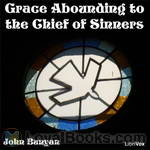 Grace Abounding to the Chief of Sinners
Grace Abounding to the Chief of Sinners
Grace Abounding is the spiritual autobiography of John Bunyan, who also penned Pilgrim’s Progress, perhaps one of the most significant pieces of Christian literature, second only to the Bible. Grace Abounding follows Bunyan’s struggle to find true repentance and forgiveness, his battle with Satan’s temptations of unbelief, his comfort found in the Bible and his overarching victory gotten by the grace of God through Jesus Christ his Son. Readers familiar with Pilgrim’s Progress will recognize... | |
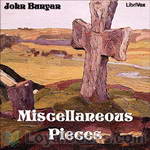 Miscellaneous Pieces
Miscellaneous Pieces
John Bunyan (November 28, 1628 – August 31, 1688), a Christian writer and preacher, was born at Harrowden (one mile south-east of Bedford), in the Parish of Elstow, England. He wrote The Pilgrim’s Progress, arguably the most famous published Christian allegory. In the Church of England he is remembered with a Lesser Festival on 30 August. Bunyan became a popular preacher as well as a prolific author, though most of his works consist of expanded sermons. In theology he was a Puritan, but there was nothing gloomy about him. The portrait his friend Robert White drew, which has often been reproduced, shows the attractiveness of his true character. | |
By: John Burroughs (1837-1921) | |
|---|---|
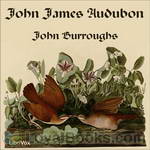 John James Audubon
John James Audubon
Audubon’s life naturally divides itself into three periods: his youth, which was on the whole a gay and happy one, and which lasted till the time of his marriage at the age of twenty-eight; his business career which followed, lasting ten or more years, and consisting mainly in getting rid of the fortune his father had left him; and his career as an ornithologist which, though attended with great hardships and privations, brought him much happiness and, long before the end, substantial pecuniary rewards. | |
 Birds and Bees, Sharp Eyes, and Other Papers
Birds and Bees, Sharp Eyes, and Other Papers
Probably no other American writer has a greater sympathy with, and a keener enjoyment of, country life in all its phases—farming, camping, fishing, walking—than has John Burroughs. His books are redolent of the soil, and have such "freshness and primal sweetness," that we need not be told that the pleasure he gets from his walks and excursions is by no means over when he steps inside his doors again. As he tells us on more than one occasion, he finds he can get much more out of his outdoor experiences by thinking them over, and writing them out afterwards... | |
By: John Clay Coleman | |
|---|---|
 Jim Crow Car; Or, Denouncement of Injustice Meted Out to the Black Race
Jim Crow Car; Or, Denouncement of Injustice Meted Out to the Black Race
"My opposition to injustice, imposition, discrimination and prejudice, which have for many years existed against the colored people of the South, has led to this little book. In many parts of America the press has been furnished with “matter” for defending the colored people, through the medium of “Coleman’s Illustrated Lectures.” By request of my many auditors, some of whom being leading elements of the Northern States and Canada, this volume is published. Many persons interested in the welfare of the negro, have sought a more elaborate book on the Southern horrors... | |
By: John Cordy Jeaffreson (1831-1901) | |
|---|---|
 A Book About Lawyers
A Book About Lawyers
| |
By: John D. Rockefeller (1839-1937) | |
|---|---|
 Random Reminiscences of Men and Events
Random Reminiscences of Men and Events
A good book by the oil revolutionist of the 20th century. As they say "Men should listen to experience" and this book is all about the experience of the second highest taxpayer of the US during the 20's. Though it is not in the book, this is a small poem he wrote:I was early taught to work as well as play,My life has been one long, happy holiday;Full of work and full of play-I dropped the worry on the way- And God was good to me everyday. | |
By: John Dewey (1859-1952) | |
|---|---|
 Democracy and Education: an introduction to the philosophy of education
Democracy and Education: an introduction to the philosophy of education
| |
 The Child and the Curriculum
The Child and the Curriculum
| |
 Moral Principles in Education
Moral Principles in Education
| |
 Human Nature And Conduct - Part 1, The Place of Habit in Conduct
Human Nature And Conduct - Part 1, The Place of Habit in Conduct
John Dewey, an early 20th Century American philosopher, psychologist, educational theorist saw Social Psychology as much a physical science as Biology and Chemistry. This project encompasses Part 1 of 4 of his book Human Nature and Conduct. Dewey's uses the word "HABIT" as a specialized catch-all word to describe how a person and his/her objective environment interact. This interaction is the basis for moral judgement. Dewey writes: "All habits are demands for certain kinds of activity; and they constitute the self.” In other places he also asserts that "Habits are Will." - Summary by William Jones, Soloist | |
By: John Donne (1572-1631) | |
|---|---|
 Devotions upon Emergent Occasions
Devotions upon Emergent Occasions
Devotions upon Emergent Occasions is a 1624 prose work by the English writer John Donne. It is a series of reflections that were written as Donne recovered from a serious illness, believed to be either typhus or relapsing fever. (Donne does not clearly identify the disease in his text.) The work consists of twenty-three parts describing each stage of the sickness. Each part is further divided into a Meditation, an Expostulation, and a Prayer. The seventeenth meditation is perhaps the best-known part of the work... | |
By: John E. (John Edwards) Russell (1834-1903) | |
|---|---|
 Rational Horse-Shoeing
Rational Horse-Shoeing
| |
By: John Evelyn (1620-1706) | |
|---|---|
 Sylva, Vol. 1 (of 2) Or A Discourse of Forest Trees
Sylva, Vol. 1 (of 2) Or A Discourse of Forest Trees
| |
 Acetaria: A Discourse of Sallets
Acetaria: A Discourse of Sallets
| |
By: John F. (John Fairfield) Dryden (1839-1911) | |
|---|---|
 The American Type of Isthmian Canal Speech by Hon. John Fairfield Dryden in the Senate of the United States, June 14, 1906
The American Type of Isthmian Canal Speech by Hon. John Fairfield Dryden in the Senate of the United States, June 14, 1906
| |
By: John Fiske (1842-1901) | |
|---|---|
 The Unseen World and Other Essays
The Unseen World and Other Essays
| |
By: John Franklin Bobbitt | |
|---|---|
 What the Schools Teach and Might Teach
What the Schools Teach and Might Teach
| |
By: John Galsworthy (1867-1933) | |
|---|---|
 John Galsworthy Works
John Galsworthy Works
| |
By: John George Nicolay | |
|---|---|
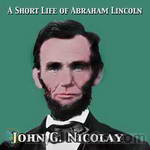 A Short Life of Abraham Lincoln
A Short Life of Abraham Lincoln
John G. Nicolay was Abraham Lincoln’s private White House secretary. With assistant secretary, John Hay, he wrote the two volume definitive biography of Lincoln, “Abraham Lincoln, a Biography.” Although this is a condensation by Nicolay of that biography, it is still a sizable work and a fairly thorough treatment of the life of the 16th president of the United States. | |
By: John Gregory Bourke (1846-1896) | |
|---|---|
 Medicine-Men Of The Apache
Medicine-Men Of The Apache
“Herewith I have the honor to submit a paper upon the paraphernalia of the medicine-men of the Apache and other tribes. Analogues have been pointed out, wherever possible, especially in the case of the hoddentin and the izze-kloth, which have never to my knowledge previously received treatment.” . Bourke was a Medal of Honor awardee in the American Civil War whose subsequent Army career included several campaigns in the Indian wars of the mid to late 19th century in the American West. He wrote prolifically... | |